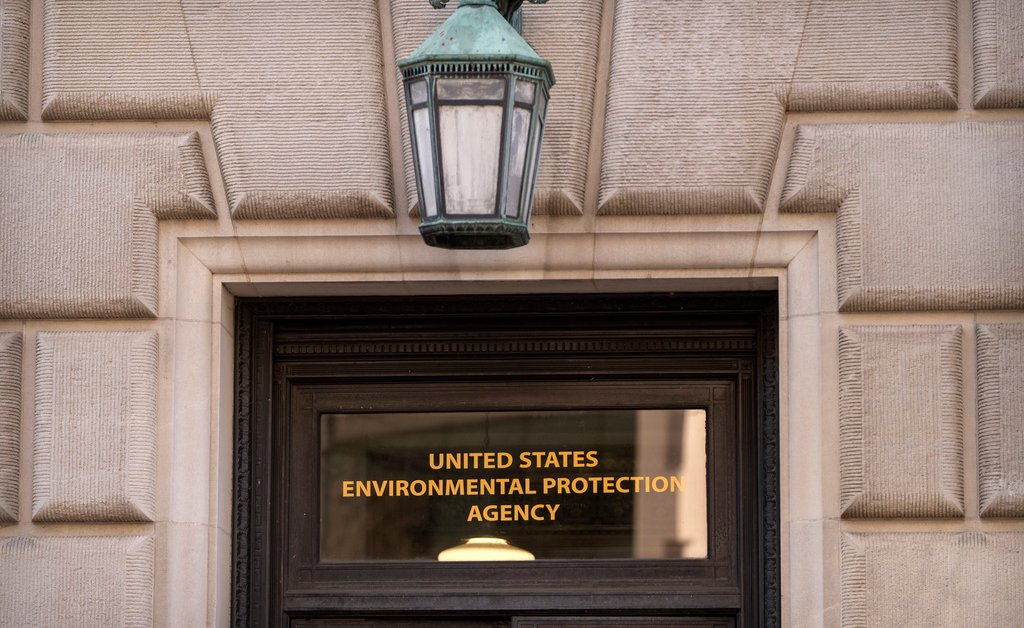Dr. James H. Bekker made it clear while standing at a podium in front of the U.S. Food and Drug Administration (FDA) in Silver Spring, Md. on July 23: there is no way to replace fluoride supplements if the government decides to take them off the market.
In communities without fluoridated water, these supplements are the only way that families can help children access fluoride, the dentist said, thus protecting their teeth from decay.
“When we don’t have fluoride, there are certain things that happen that are very disturbing,” said Bekker, a professor at the University of Utah School of Dentistry and a past president of the American Dental Association, at a hearing debating the FDA’s plan to ban ingestible fluoride tablets from the marketplace. “We have an increase in tooth decay, and we have an increase in the use of emergency services to receive care for dental emergencies.”
Yet the FDA appears to be moving towards banning these supplements after a contentious hearing in which scientists, pediatricians, and other doctors argued for and against banning fluoride supplements. The move comes after a controversial study published in JAMA Pediatrics in Jan. 2025 found that significant fluoride exposure was linked to a decrease in children’s IQ scores. The level of fluoride linked with IQ decay was far greater than the amount children are exposed to through either supplements or fluoridated water.
“What this is saying is that fluoride in water was causing a cognitive decrease in younger children—so that’s a tough thing to defend,” said Dr. George Tidmarsh, the former pharmaceutical executive recently tapped to run the FDA’s Center for Drug Evaluation and Research, at the hearing. He then went on to criticize the pro-fluoride presentations that had just occurred and praise the presentation of Dr. Bill Osmunson, a dentist on the board of directors of the Fluoride Action Network, a group that is advocating against fluoride across the country.
In May, the FDA said it was initiating action to remove ingestible fluoride prescription drug products for children from the market, and that it had asked the organization that Tidmarsh now heads to evaluate the evidence on these prescription drug products. It set a date for Oct. 31 for completing a safety review and public comment period, and for “taking appropriate action regarding removal of these products from the market.” The July 23 hearing was part of that public comment period.
These fluoride supplements, unlike fluoridated water, have not been extensively studied or tested, which is one of the reasons the FDA says it wants to ban them. “When it comes to children, we should err on the side of safety,” FDA Commissioner Dr. Marty Makary said, in the announcement that the FDA would move to ban supplements.
Read More: America’s Dental Health Is In Trouble
The move to restrict access to fluoride supplements follows efforts to ban fluoride from drinking water across the country; these efforts have been successful in Utah and Florida, which both banned fluoride from drinking water this year. Challenges to fluoride in the drinking water became more prevalent after Robert F. Kennedy Jr., now the Secretary of Health and Human Services (HHS), called fluoride “industrial waste” in Nov. 2024, and said that the Trump Administration would advise that it be removed from drinking water supplies.
The debate over fluoride is the latest example of how Kennedy’s tenure at HHS has upended decades of scientific consensus, putting many medical professionals on the defensive. Fluoride has been widely proven to decrease cavities, and places that banned fluoride from drinking water like Calgary, in Canada, saw a notable uptick in tooth decay afterwards. (Calgary later decided to restore fluoride to the water supply.) Studies that suggest negative impacts of fluoride on children’s IQ and thyroid function, on the other hand, have mostly been conducted outside the U.S. and looked at higher ranges of fluoride than most U.S. children are exposed to.
“We are the only country questioning the safety of fluoride at this level,” said Dr. Scott Tomar, a dentist at the University of Illinois Chicago College of Dentistry, one of the many medical professionals who spoke at the hearing and seemed not a little frustrated by some of the science being put forward.
Doctors and dentists also said that banning fluoride supplements would disproportionately affect low-income children who don’t have consistent access to dental care and who often live in areas that already have high rates of cavities. Even if these children have the best practices in caring for their teeth, the absence of fluoride can hurt.
“Just brushing and using toothpaste alone is not enough,” said Dr. Jennifer Webster-Cyriaque, a dentist who is the acting director of the National Institute of Dental and Craniofacial Research at the National Institutes of Health.
While the official FDA panels were evenly divided between pro and anti-fluoride speakers, the public comment period was full of doctors and dentists reiterating the benefits of fluoridation.
“It is important to note that no serious or robust data exists to support the contention that these products pose a threat to public health,” said Peter Pitts, president and co-founder of the Center for Medicine in the Public Interest, in the public comment period.
Read More: The Science Behind Fluoride in Drinking Water
The American Dental Association, the American Association of Pediatrics, other professional medical organizations, as well as many independent dentists and dental hygienists submitted comments to the FDA on the topic of fluoridation, advocating for the supplements to remain on the market. One of the ironies of the move to ban fluoride supplements is that states that banned fluoride from water supplies pointed to supplements as a way that families could give fluoride to their children once it was removed from the water supply. Now, the government is talking about taking those away.
“That whole argument in that legislation was, ‘get a supplement,’” said Bekker, the Utah dentist. “As we consider supplements, the opportunity to have them available is a matter of people’s choice. We’re not forcing anyone to take them; we’re allowing them to have an option, and to have a choice.”
Tidmarsh, from the FDA, assured the pro-fluoride contingent that if supplements are banned, there is still one way to get them back on the market: as a drug. He pointed out that supplements are not approved by the FDA, meaning they have not gone through rigorous testing and analysis. (Many pharmaceutical products prescribed to children, such as some cold medicines, have also not gone through that analysis because there are not many clinical trials involving children.) “If we decide to take sodium fluoride supplement off the market, there’s nothing that would prevent a group from doing the rigorous studies bringing it back to FDA,” he said.
The hearing included evidence on fluoride’s effect on the gut microbiome, on neurocognitive development, and on the thyroid. But many of these presentations received pushback from doctors and dentists at the hearing, who said that they did not present the full picture of what the research actually found.
“What we’ve seen today is people cherry-picking studies and making conclusions without presenting us with the complete data that we need,” said Dr. Charlotte W. Lewis, a pediatrician and professor at the University of Washington School of Medicine, at the hearing. “And that’s not what research in this country should be about.”








